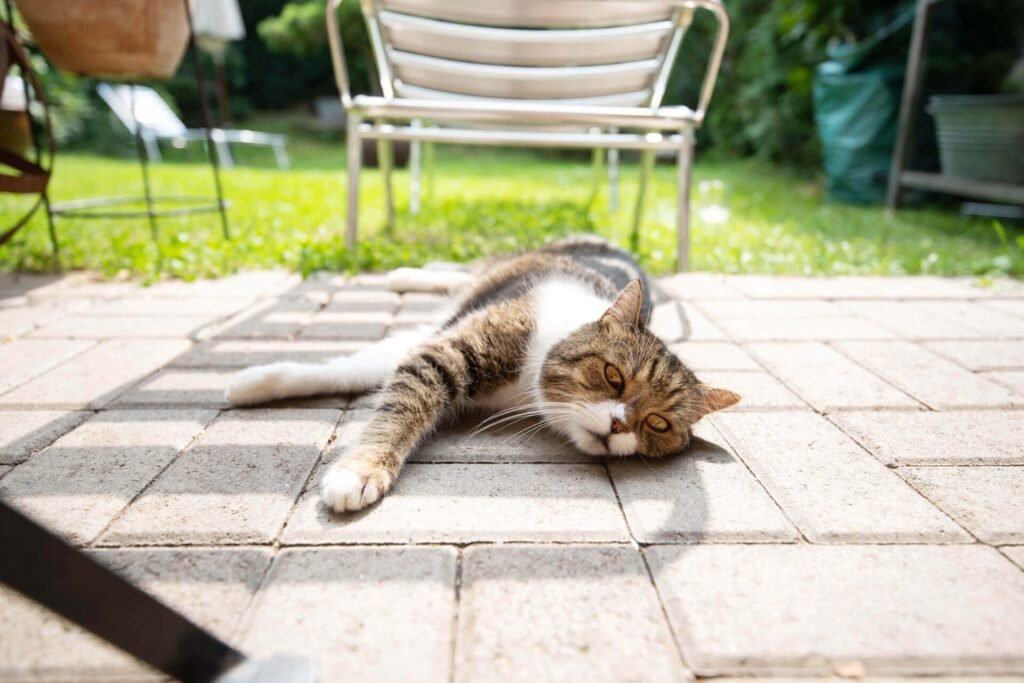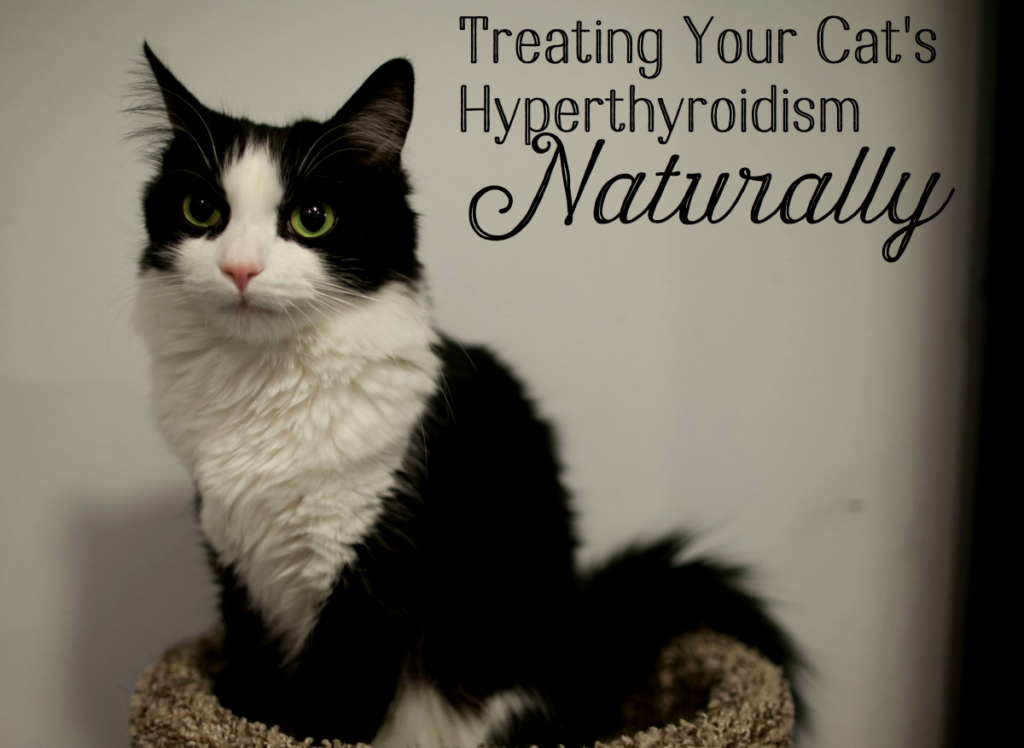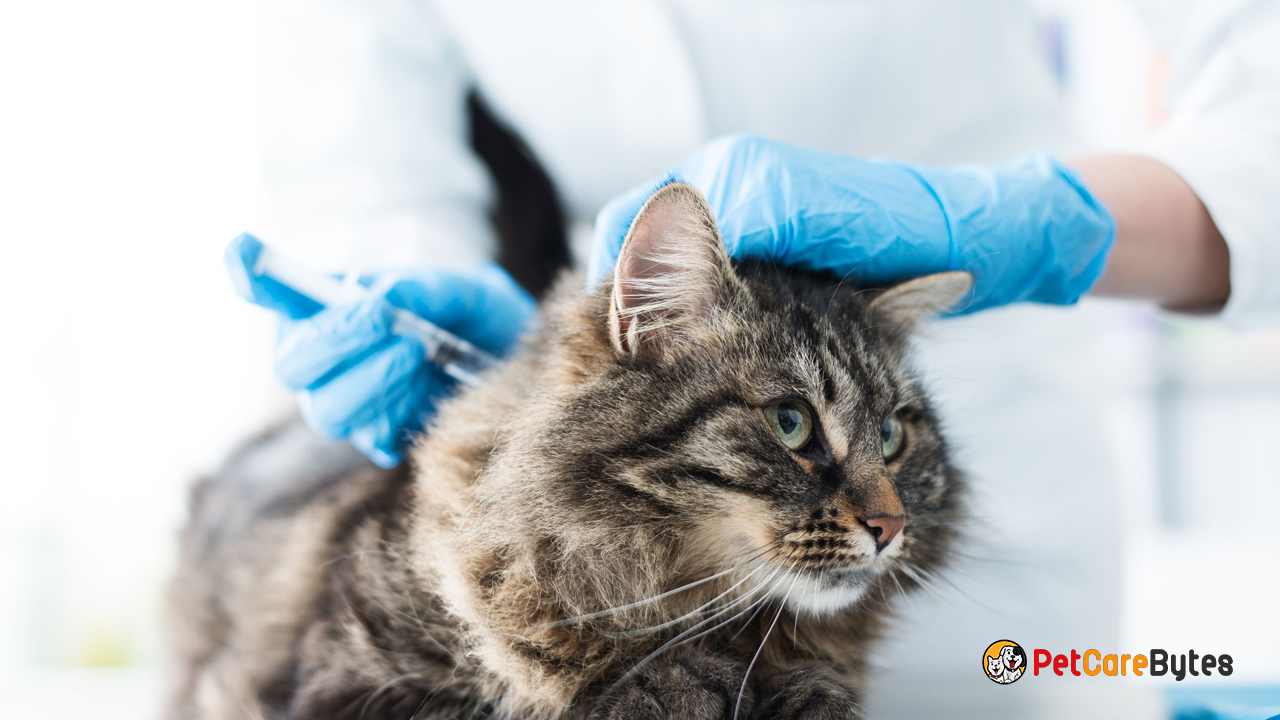As a pet owner, ensuring the health and well-being of your feline companion is of utmost importance. One common condition that affects cats, particularly as they age, is hyperthyroidism. Methimazole, a medication used to manage this condition, has proven to be an effective treatment option. In this article, we will explore the various aspects of methimazole for cats, shedding light on its uses, benefits, potential side effects, administration, and more. Let’s dive in and discover how this medication can help your beloved feline friend.
Read More: Heatstroke in Cats: Symptoms & Treatments
Contents
- 1 Understanding Feline Hyperthyroidism
- 2 Recognizing Hyperthyroidism Symptoms
- 3 The Role of Methimazole in Treating Hyperthyroidism
- 4 Consulting Your Veterinarian
- 5 Administering Methimazole to Your Cat
- 6 Monitoring and Managing Side Effects
- 7 Lifestyle Changes and Supportive Care
- 8 Alternative Treatment Options
- 9 Long-term Management and Prognosis
- 10 FAQs (Frequently Asked Questions)
- 11 Conclusion
Understanding Feline Hyperthyroidism

Hyperthyroidism is a common endocrine disorder in cats, primarily affecting older felines. It occurs when the thyroid glands, located in the neck, produce an excessive amount of thyroid hormones. These hormones play a crucial role in regulating the body’s metabolism. When the thyroid glands become overactive, various bodily functions are affected, leading to hyperthyroidism.
Prevalence in Cats
Feline hyperthyroidism is one of the most common hormonal disorders in older cats. It is more prevalent in cats over the age of 10 years, and the risk of developing the condition increases with age.
Causes and Risk Factors
The exact cause of hyperthyroidism in cats is still not fully understood, but several factors may contribute to its development. Some of the potential risk factors include genetic predisposition, environmental factors, and dietary influences.
Recognizing Hyperthyroidism Symptoms
Hyperthyroidism can manifest in a range of symptoms, which may vary from cat to cat. Being vigilant about any changes in your cat’s behaviour and health is essential for early detection and timely treatment.
Weight loss and Increased Appetite
One of the hallmark signs of hyperthyroidism in cats is unexplained weight loss despite having an increased appetite. Cats may continue to eat normally or even more than usual, yet they lose weight over time.
Hyperactivity and Restlessness
Cats with hyperthyroidism may display increased activity levels, restlessness, and agitation. They may become more vocal and have difficulty settling down.
Vomiting and Diarrhea
Gastrointestinal symptoms, such as vomiting and diarrhoea, can occur in cats with hyperthyroidism. These digestive issues can further contribute to weight loss and dehydration.
Changes in Fur and Skin
Hyperthyroidism may affect a cat’s fur and skin. You may notice a dull, unkempt coat or excessive shedding. Some cats may develop skin problems or experience hair loss.
The Role of Methimazole in Treating Hyperthyroidism

Methimazole is a medication commonly prescribed to manage feline hyperthyroidism. It belongs to the class of thionamide drugs and effectively blocks the production of excessive thyroid hormones.
How Methimazole Works
Methimazole works by inhibiting an enzyme called thyroperoxidase, which is essential for the synthesis of thyroid hormones. By doing so, it helps reduce the production of thyroid hormones, bringing their levels back to normal.
Benefits and Effectiveness
Methimazole has shown remarkable effectiveness in managing feline hyperthyroidism. It helps alleviate the symptoms associated with the condition, such as weight loss, increased appetite, and hyperactivity.
When to Start Treatment
If your cat is diagnosed with hyperthyroidism, your veterinarian will discuss the appropriate time to start methimazole treatment. Factors such as the severity of the condition, the cat’s overall health, and any pre-existing medical conditions will be taken into consideration.
Consulting Your Veterinarian
If you suspect your cat may have hyperthyroidism or if you notice any concerning symptoms, it’s crucial to consult your veterinarian promptly.
Diagnostic Tests for Hyperthyroidism
To confirm a hyperthyroidism diagnosis, your veterinarian may conduct various tests, including blood tests to assess thyroid hormone levels, physical examination, and possibly an ultrasound of the thyroid glands.
Discussing Treatment Options
Your veterinarian will discuss the various treatment options available for managing feline hyperthyroidism, including the use of methimazole. They will help you make an informed decision based on your cat’s individual needs and health status.
Addressing Concerns and Questions
During the consultation, feel free to ask any questions or express any concerns you may have about the diagnosis or the prescribed treatment. Your veterinarian is there to provide you with the necessary information and support.
Administering Methimazole to Your Cat
Methimazole is available in different forms, including tablets, oral solutions, and transdermal gels. Your veterinarian will determine the most suitable form and dosage for your cat.
Proper Dosage Guidelines
The dosage of methimazole will be based on your cat’s weight, thyroid hormone levels, and response to the medication. It’s essential to follow your veterinarian’s instructions carefully to ensure the correct dosage.
Tips for Giving Medication
Administering medication to cats can be challenging. Here are some tips to make the process smoother:
- Use a pill dispenser or pill pockets to hide the medication.
- If using a transdermal gel, apply it to the inside of your cat’s ear, as directed by your veterinarian.
- Always monitor your cat’s response to the medication and report any concerns to your veterinarian.
Monitoring and Managing Side Effects
Like all medications, methimazole may cause side effects in some cats. Most side effects are mild and resolve on their own, but some may require veterinary attention.
Common Side Effects
Common side effects of methimazole may include:
- Vomiting or nausea
- Decreased appetite
- Lethargy or weakness
Serious Adverse Reactions (When to Seek Veterinary Care)
In some cases, cats may experience more severe adverse reactions to methimazole. If you notice any of the following symptoms, seek immediate veterinary care:
- Severe vomiting or diarrhea
- Yellowing of the skin or eyes (jaundice)
- Difficulty breathing or other signs of an allergic reaction
Lifestyle Changes and Supportive Care

In addition to medication, making certain lifestyle changes and providing supportive care can further improve your cat’s well-being.
Diet and Nutrition
A balanced and appropriate diet is essential for cats with hyperthyroidism. Your veterinarian may recommend specific dietary modifications to support your cat’s health.
Environmental Enrichment
Environmental enrichment can help alleviate stress and anxiety in cats, contributing to their overall well-being. Providing toys, scratching posts, and opportunities for mental stimulation can be beneficial.
Regular Vet Check-ups
Regular veterinary check-ups are crucial for monitoring your cat’s progress and adjusting the treatment plan as needed. Your veterinarian will perform periodic blood tests to assess thyroid hormone levels.
Alternative Treatment Options
While methimazole is a commonly used treatment, there are alternative options available for managing feline hyperthyroidism.
Radioactive Iodine Therapy
Radioactive iodine therapy involves administering a small amount of radioactive iodine to destroy the overactive thyroid tissue. It is a highly effective treatment but may require hospitalization.
Surgical Thyroidectomy
Thyroidectomy involves surgically removing the affected thyroid gland(s). This procedure is generally reserved for cases where radioactive iodine therapy or medication is not suitable.
Long-term Management and Prognosis
Managing feline hyperthyroidism is a long-term commitment. With proper treatment and care, most cats respond well to methimazole therapy and can lead happy, comfortable lives.
Staying compliant with medication
Consistency with medication administration is crucial for successful management. Make sure to administer the prescribed dosage as directed by your veterinarian.
Monitoring Thyroid Levels
Regular monitoring of thyroid hormone levels is essential to ensure the medication’s effectiveness and adjust the dosage if needed.
Life Expectancy and Quality of Life
With appropriate treatment and regular veterinary care, cats with hyperthyroidism can enjoy a good quality of life. Early detection and intervention are vital for improving the prognosis.
Read More: The Best Flea and Tick Medication for Cats
FAQs (Frequently Asked Questions)
- Can methimazole cure hyperthyroidism in cats? Methimazole doesn’t cure hyperthyroidism but effectively manages the condition, providing symptom relief and improving the cat’s quality of life.
- Are there any natural remedies for feline hyperthyroidism? While some natural supplements have been suggested, their effectiveness is not well-established. Always consult your veterinarian before using any alternative treatments.
- Is it safe to give methimazole to pregnant or nursing cats? Methimazole is generally not recommended for pregnant or nursing cats due to potential risks to the kittens. Consult your veterinarian for alternative management options.
- Can I crush methimazole tablets to mix with cat food? Crushing tablets should be avoided, as they may alter the medication’s effectiveness. Consult your veterinarian for alternative administration methods.
- Are there any special considerations for senior cats on methimazole? Senior cats may require additional monitoring and more frequent veterinary check-ups while on methimazole. Your veterinarian will tailor the treatment plan to suit your cat’s specific needs.
Conclusion
Feline hyperthyroidism is a manageable condition, and methimazole has proven to be a reliable and effective treatment option. Early detection, prompt veterinary consultation, and consistent medication administration are vital for ensuring the best possible outcome for your beloved cat. Remember to discuss any concerns with your veterinarian, and together, you can provide the best care for your feline companion.




















